Have you ever wondered, ‘If only I had done something differently, then the results would be different’? This thought process is an example of counterfactual thinking in action. Understanding what is counterfactual thinking involves exploring our minds’ ‘what if’ scenarios.”
We will look at four real-life situations that show how thinking about “what if” can change how we see ourselves and the world around us.
But before exploring the examples, let us first understand what is counterfactual thinking.
What is Counterfactual Thinking?
Counterfactual thinking means imagining a different way things could have happened. “Counterfactual” basically means thinking about something that didn’t actually happen.
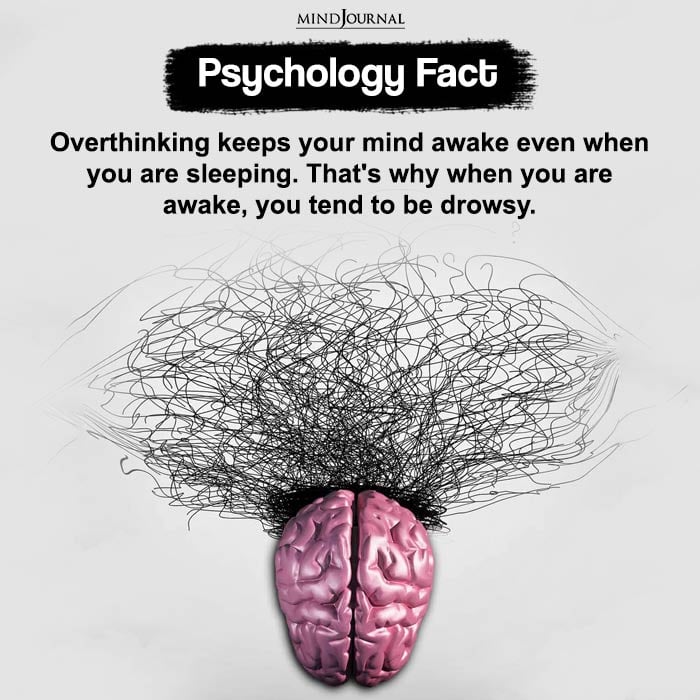
It’s when we think about how things could have been if we had done something else.
This kind of counterfactual thinking often happens when we’re feeling bad about something that went wrong. We start thinking about how it could have been better if we had done things differently.
For example, when we don’t do well on a test, we might think, “What if I had studied more?” Or if there’s a car accident, the driver might think, “If only I had pressed the brake faster.”
Thinking about these different possibilities can also help us remember times when things did go well. This can help us do better in the future. It’s like learning from the past to make better choices in the future.
Read More: 10 Exercises That Help You Stop Overthinking
Counterfactual Thinking Examples
In order for you to better understand what is counterfactual thinking, we have curated a list of real-world examples. These four detailed counterfactual thinking examples shed light on how this mental process can influence our personal growth and decision-making.
The counterfactual thinking examples are as follows:
1. Missed Job Opportunity
Imagine a scenario where a professional misses a significant job opportunity due to a lack of preparation for the interview. Afterward, they might find themselves pondering, “What if I had researched the company more thoroughly?” This thought process could prompt them to approach future interviews with a more comprehensive understanding of the organization, leading to greater success.
2. Relationship Dynamics
Consider a situation where a person reflects on a past relationship that didn’t work out. They might contemplate, “What if I had communicated my feelings better?” This counterfactual thinking could encourage them to improve their communication skills, leading to healthier and more fulfilling relationships in the future.
3. Fitness Journey
Visualize someone who fell short of achieving their fitness goals. They might think, “What if I had maintained a consistent workout routine?” This counterfactual thinking might motivate them to establish a more structured exercise regimen, fostering improved physical health and well-being.
4. Academic Performance
Envision a student who received a lower grade on an important assignment than expected. They may dwell on thoughts like, “What if I had managed my time more effectively?” This contemplation could inspire them to refine their time management skills, leading to better academic performance and reduced stress levels.
By reflecting on alternative choices and potential outcomes, you can gain valuable insights that drive you toward positive changes and greater achievements.
Counterfactual Thinking Psychology
Delving into the realm of “what if” scenarios is like peeling back the layers of our thoughts. Counterfactual thinking, as it’s called, is a common mental process that we all engage in. But the motivations behind it have been explored from different angles.
One early counterfactual thinking psychology theory, called norm theory, suggested that we create these alternative scenarios based on our memories of similar experiences. If something unusual happens, we tend to think, “If only,” trying to bring things back to the usual way.
For example, if someone has an accident on a route they don’t normally take during their regular commute time, they might wish they had taken their usual route.
On the other hand, if someone has an accident while taking their regular route at an unusual time, they might wish they had driven at their usual time. It’s all about trying to make sense of things by comparing them to what’s normal.
In norm theory, counterfactual thinking was often seen as a form of biased judgment and decision-making. It could sometimes lead us astray in our thinking.
Read More: What Is Positive Psychology? 6 Benefits, Drawbacks And FAQs
Functional Theory Of Counterfactual Thinking
But over time, other theories have come into play. The functional theory sees counterfactual thinking as a way our brains link pieces of information to make inferences.
It is like connecting the dots to figure out what could have been.
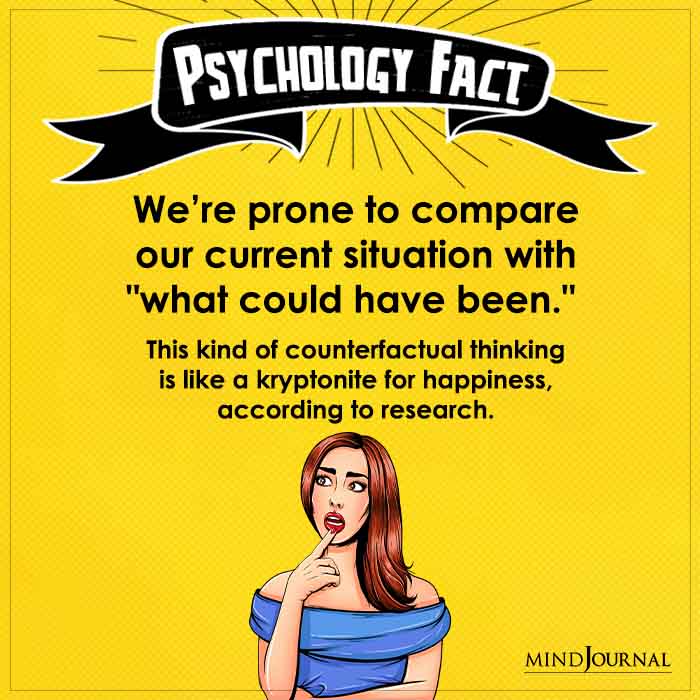
According to the functional theory of counterfactual thinking, Counterfactual thoughts often kick in when we have not achieved a goal.
According to funtional theorists, counterfactual thinking is more about problem-solving and goal achievement, rather than just being a source of bias. It’s a way for us to learn from our mistakes and make better choices in the future.
These thoughts point out what we could have done differently to reach that goal. It helps in understanding what is counterfactual thinking by providing a link between an event and the causal relations of that event.
Read More: Positive Thinking: 8 Effective Steps For A Positive Mindset
Symptoms of Counterfactual Thinking
Counterfactual thinking, while a natural cognitive process, can sometimes manifest in various ways, impacting our emotional well-being and decision-making. In order for you to gain an understanding of what is counterfactual thinking, it is important to recognize the symptoms.
Here are some common symptoms to look out for:
1. Persistent Regret
Feeling persistent regret over past decisions and actions, accompanied by continuous thoughts of “if only” or “what if.”
Read More: Why You Should Never Regret Early Life Mistakes: 5 Reasons
2. Ruminating on Past Events
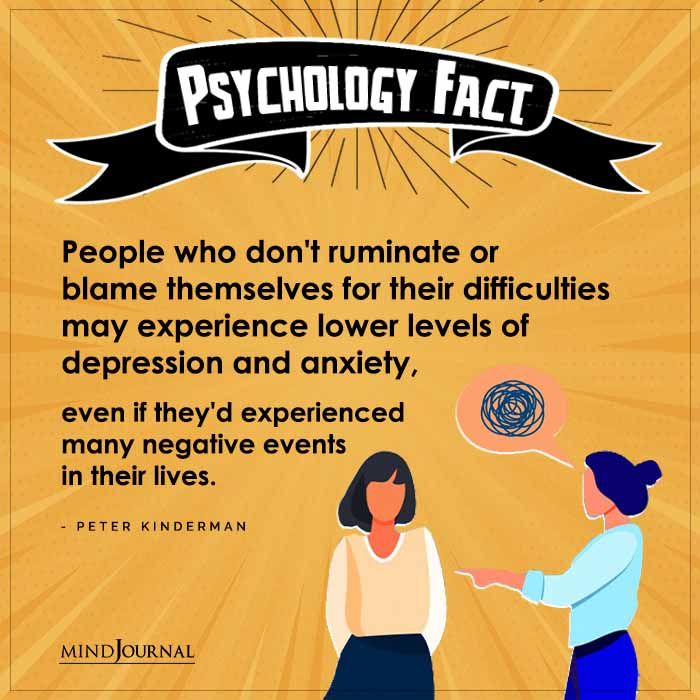
Finding yourself frequently replaying past events in your mind, analyzing alternative outcomes, and imagining different scenarios.
3. Emotional Distress
Experiencing heightened emotional distress, such as sadness, guilt, or frustration, triggered by revisiting past events and imagining alternative possibilities.
Read More: Emotional Distress: 7 Signs You Are Feeling Mental Strain
4. Negative Self-Talk
Engaging in negative self-talk, where you constantly blame yourself for past outcomes and dwell on perceived shortcomings.
5. Impact on Present Decision-Making
Allowing past experiences to excessively influence present decision-making, often leading to indecisiveness or avoidance of new opportunities.
If you notice these symptoms of what is counterfactual thinking, remember it can significantly impact your daily life or mental well-being. Seeking support from a trusted friend, family member, or mental health professional can be beneficial for you.
How To Stop Counterfactual Thinking?
Counterfactual thinking, while offering valuable lessons, can sometimes become a repetitive and unproductive mental loop. You can follow the below strategies to learn how to stop counterfactual thinking:
1. Awareness is Key
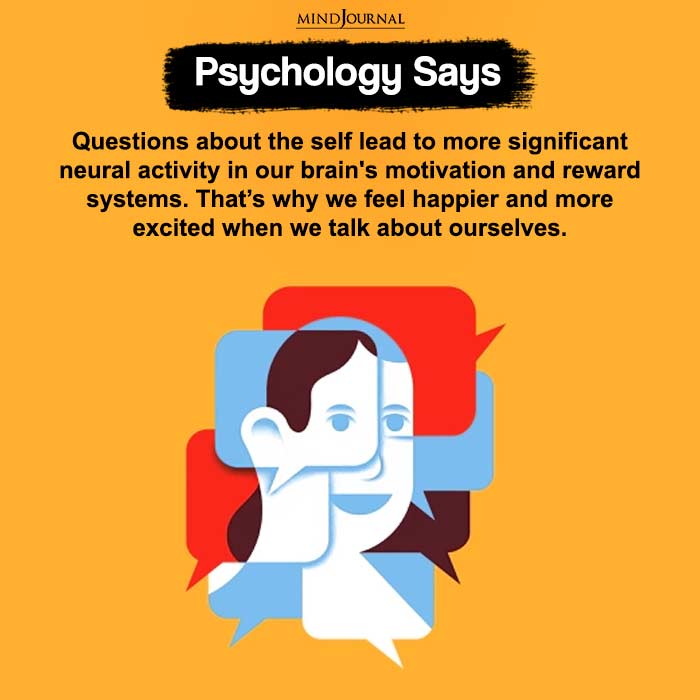
The first step in breaking the cycle is recognizing when you’re engaged in counterfactual thinking. Pay attention to the moments when your mind drifts into “what if” scenarios.
Read More: Self-Monitoring: 9 Best Tips To Self-Monitor Yourself
2. Practice Mindfulness
Mindfulness techniques can be incredibly effective. When you notice yourself slipping into counterfactual thinking, gently bring your focus back to the present moment. Deep breathing and grounding exercises can aid in this process.
Read More: How Mindfulness Can Improve Your Overall Mental Health
3. Challenge Negative Assumptions
Often, counterfactual thinking revolves around negative assumptions about the past. Challenge these assumptions by asking yourself if they’re based on facts or if they’re simply unhelpful rumination.
4. Set Realistic Goals
Instead of fixating on past mistakes, set realistic and achievable goals for the future. This forward-looking approach shifts your focus from dwelling on the past to planning for a better tomorrow.
Read More: 7 Examples Of How Successful People Set Goals And Achieve Them
5. Limit Rumination Time
Allow yourself a set amount of time each day to engage in counterfactual thinking if it helps you learn from past experiences. After that allotted time, make a conscious effort to redirect your thoughts to the present.
By incorporating these strategies into your daily life, you can regain control over your thoughts and find a healthier balance between reflecting on the past and focusing on the present and future.
Read More: 10 Exercises That Help You Stop Overthinking
Navigating the Path Forward
As we conclude our exploration of counterfactual thinking, it’s crucial to acknowledge the power of our thoughts and the impact they have on our present well-being and future growth.
While our minds naturally wander through the endless possibilities of “what if,” it’s essential to strike a balance between learning from the past and embracing the opportunities of the present.
Recognizing the symptoms of counterfactual thinking and understanding how they can influence our emotions and decision-making processes is the first step. By heeding the valuable strategies outlined to curb counterfactual ruminations, we can pave the way for a more mindful and purposeful approach to life.
Frequently Asked Questions (FAQs)
1. What is counterfactual thinking?
Counterfactual thinking is the mental process of imagining alternative outcomes based on different choices, often triggered by feelings of regret or dissatisfaction with past events.
2. What do you mean by counterfactual thinking psychology?
Counterfactual thinking psychology explores the theoretical perspectives underlying counterfactual thinking, examining how individuals construct alternative scenarios and their impact on decision-making and emotional well-being.
3. What are some counterfactual thinking examples?
Examples include pondering missed job opportunities, reflections on past relationships, considerations about fitness routines, and contemplation of improved time management for academic performance.
4. What is the functional theory of counterfactual thinking?
The functional theory sees counterfactual thinking as a problem-solving tool, aiding in identifying alternative actions for desired outcomes and learning from past mistakes.
5. Is counterfactual thinking good?
Counterfactual thinking can be beneficial for learning and personal growth, but excessive rumination may lead to persistent regret and emotional distress, affecting present decision-making. Finding a balance is crucial for its positive application.


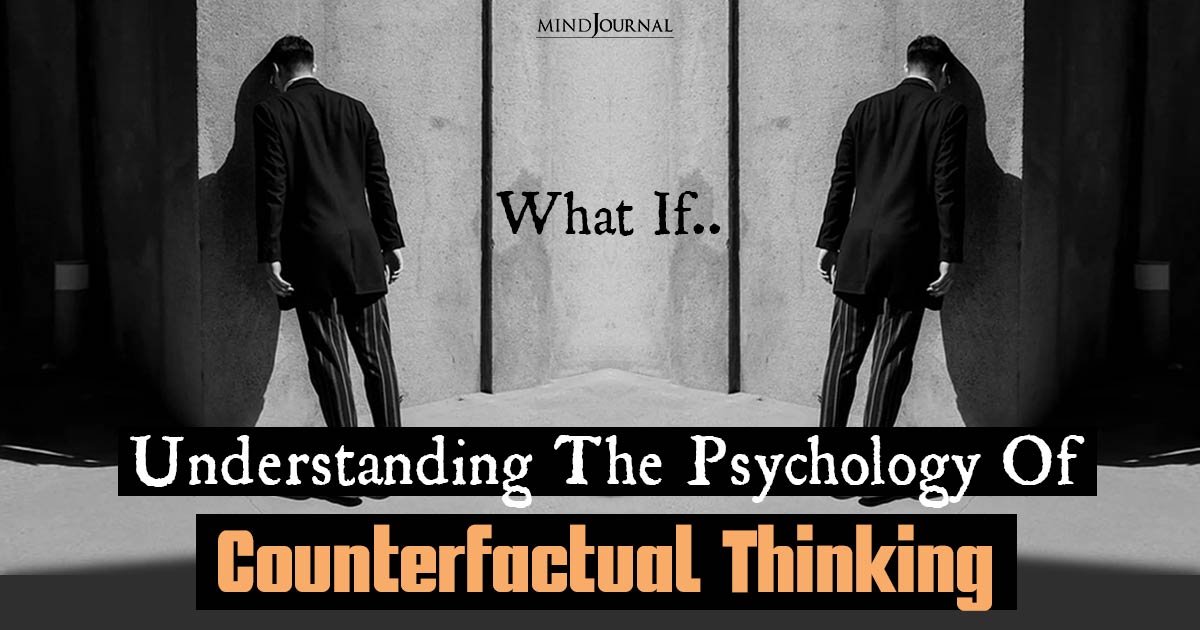







Leave a Reply